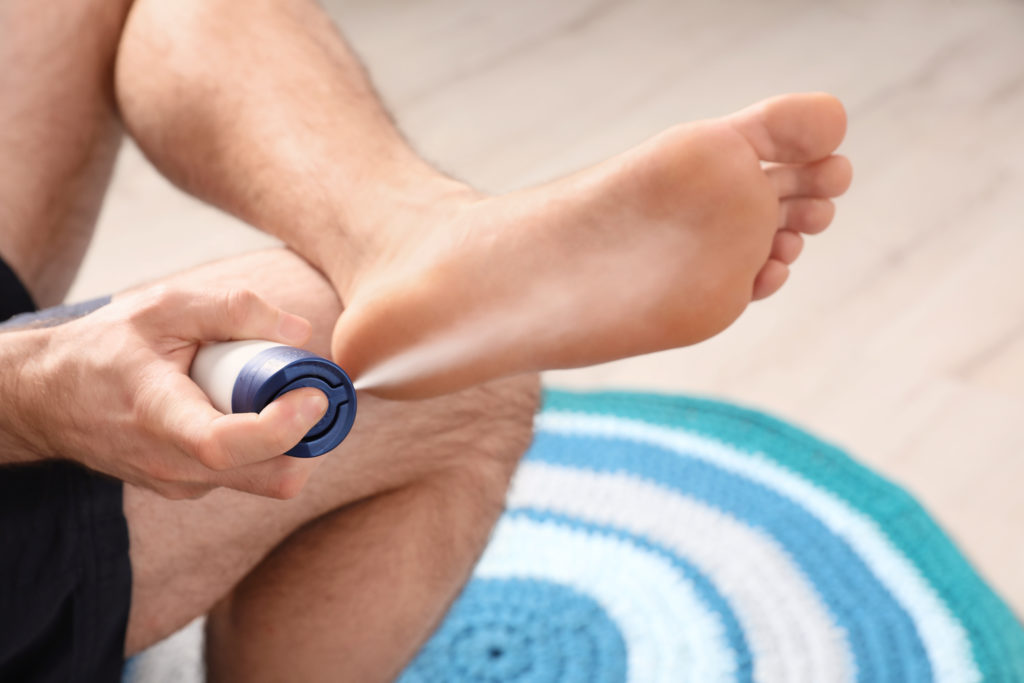How to Stop Sweaty Hands and Feet: Top Dermatology Treatments for Excessive Sweating
How to Stop Sweaty Hands and Feet: Top Dermatology Treatments for Excessive Sweating
Blog Article
Recognizing the Source of Excessive Sweating and Its Influence on Every Day Life
Extreme sweating, also referred to as hyperhidrosis, is a problem that influences a significant portion of the population, yet its underlying reasons and effects on daily operating continue to be rather enigmatic. While it is commonly recognized as a physiological reaction to manage body temperature, the triggers for excessive sweating can vary widely amongst people, incorporating not just physical elements however emotional and likewise psychological components. The influence of this problem extends past mere pain, typically influencing social communications and overall high quality of life. By delving right into the origin of hyperhidrosis and exploring its complex effects, a deeper understanding of this pervasive concern can be gained, dropping light on the complexities that individuals facing excessive sweating navigate every day.
Physiology of Sweat Glands
The policy of sweat production, a critical physical procedure, is largely controlled by the task of sweat glands dispersed throughout the human body. Sweat glands are categorized right into 2 main types: eccrine and apocrine glands.
When the body temperature climbs, either because of exercise, heats, or psychological anxiety, the anxious system sets off the gland to create sweat. This sweat is made up mostly of water and electrolytes like sodium and chloride. The process of sweat manufacturing is necessary for preserving the body's internal temperature within a slim, optimum variety, highlighting the essential duty gland play in human physiology.
Triggers for Excessive Sweating
In understanding the origin causes of too much sweating, it is important to determine the triggers that can bring about this physiological feedback. Extreme sweating, likewise referred to as hyperhidrosis, can be motivated by various elements, both physiological and ecological. One usual trigger is psychological anxiety or anxiousness, which can promote the body's sweat glands to create even more sweat than is essential for cooling down. Physical exertion, heats, and spicy foods are additionally recognized to trigger extreme sweating in individuals susceptible to this problem. Specific clinical problems like diabetes mellitus, hyperthyroidism, or menopause can contribute to extreme sweating as well.
In addition, drugs such as some antidepressants, opioids, and specific supplements can also serve as triggers for hyperhidrosis. Recognizing these triggers is essential in taking care of too much sweating efficiently - Sweaty hands treatment. By recognizing and resolving the details triggers that prompt too much sweating in an individual, doctor can develop individualized therapy plans to ease this problem and enhance the person's quality of life
Medical Conditions Associated
Related to excessive sweating are numerous medical conditions that can aggravate this physiological feedback. One common problem is hyperhidrosis, a problem characterized by unusually enhanced sweating that exceeds the body's thermoregulatory demands. This can materialize in focal locations like the hands, soles, underarms, or face, influencing an individual's high quality of life as a result of social embarrassment and pain.
Moreover, endocrine conditions such as hyperthyroidism, diabetic issues, and menopausal warm flashes can also lead to excessive sweating. Hyperthyroidism triggers an overflow of thyroid hormonal agents, increasing metabolism and activating sweating.
In addition, infections like endocarditis, consumption, and hiv have actually been related to night sweats, a common signs and symptom understood to disrupt rest and impact overall wellness. These clinical problems click site highlight the varied variety of underlying variables that can add to extreme sweating, necessitating extensive evaluation and administration by medical care specialists.
Psychological and Mental Variables

Effect On Social Communications
Extreme sweating can have extensive impacts on an individual's capacity to engage comfortably in social communications. The noticeable indications of sweat spots or wet patches on clothes can result in shame and self-consciousness, causing people to take out from social circumstances. This withdrawal can impact relationships, restriction social tasks, and impede personal and professional growth.

In addition, the anxiety and self-worth concerns coming from too much sweating can influence communication and social abilities. Individuals may struggle to focus on conversations, participate in group tasks, or share themselves with confidence. This can cause feelings of isolation and isolation, as social connections come to be testing to keep.
Conclusion
While it is typically recognized as a physical action to control body temperature level, the triggers for extreme sweating can differ widely among individuals, including not only physical variables but likewise emotional and emotional elements. By diving right into the origin creates of hyperhidrosis and exploring its multifaceted results, a deeper understanding of this pervasive issue can be acquired, losing light on the complexities that people grappling with excessive sweating navigate on a day-to-day basis.
Physical effort, high temperature levels, and spicy foods are likewise understood to trigger too check out this site much sweating in people prone next page to this problem. By recognizing and resolving the certain triggers that trigger too much sweating in an individual, medical care carriers can create customized treatment plans to ease this problem and improve the person's top quality of life.
Excessive sweating can have profound impacts on an individual's ability to engage conveniently in social communications.
Report this page